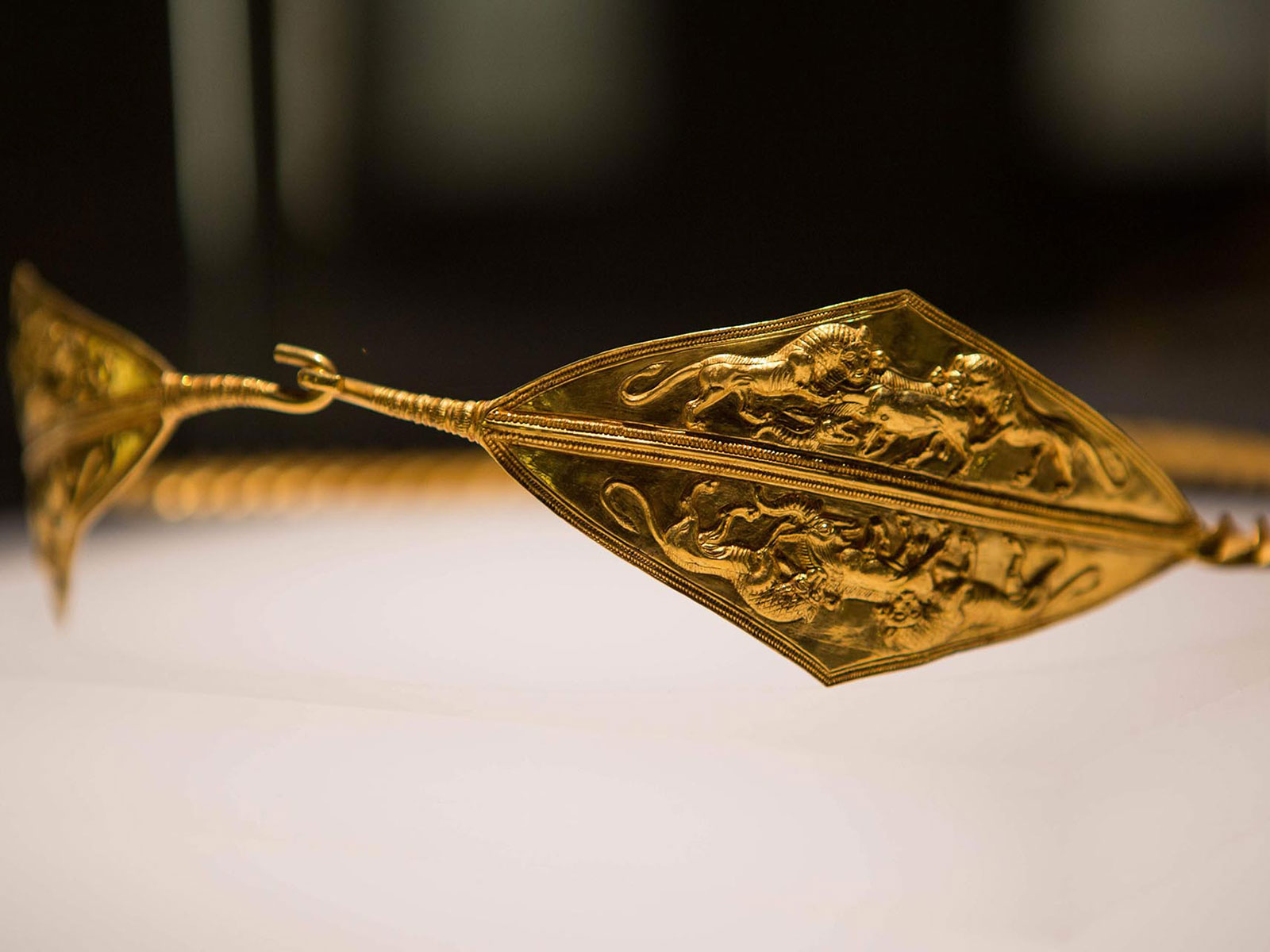Anthropology
Related: About this forumWhy This Ancient Civilization Fell Out of Love With Gold for 700 Years
Analysis of 4,500 artifacts suggests an early society between the Black and Caspian Seas turned against bling
Bridget Alex
Contributing Writer
December 17, 2021

A fifth century B.C.E. diadem, or headband, from Colchis, in the southern Caucasus. Steve Batiuk, ASOR Photo Collection under CC BY-SA 4.0
Four thousand years ago, the finest gold items on Earth belonged to the nomadic groups that roamed the mountainous lands between the Black and Caspian Seas. These communities herded animals for a living, but they also mastered gold working long before most societies. Their elites flaunted that bling, especially in their tombs, which were loaded with golden goblets, jewelry and other treasures. Word of this gold-rich land spread and spawned tall tales from faraway lands, like the ancient Greek myth of Jason and the Golden Fleece. In most versions of the legend, the hero and his crew brave a perilous journey to retrieve a magical ram’s gold-colored wool from Colchis—what is today the country of Georgia in the Caucasus Mountains.
But, according to new research published in Scientific Reports, gold fell out of fashion in the Caucasus and remained unpopular for at least 700 years. Analyzing more than 4,500 artifacts, discovered by archaeologists over the past 130 years, a researcher showed that gold items became rare across a large swatch of the territory between 1500 and 800 B.C.E. The locals seem to have decided, then, that gold was gaudy.
“This paper is important… because it reminds us that our values are not universal. Even something we tend to regard as a global commodity—that is gold, the allure of gold—is not universal in space and time,” says Cambridge professor Marcos Martinón-Torres, an expert on ancient metals who was not involved in the research.
And that shift may reflect more than fashion whims. The archaeologist behind the research, Nathaniel Erb-Satullo of Cranfield University in the United Kingdom, thinks the gold decline resulted from elites losing status. Perhaps, average folks decried the one-percenters of their day, and ostentatious markers of wealth, like gold adornments, went out of style. Down with the rich and their riches.
More:
https://www.smithsonianmag.com/science-nature/why-this-ancient-civilization-fell-out-of-love-with-gold-for-700-years-180979254/
Deuxcents
(19,705 posts)Posted lessons from our Native American leaders and explained why “yellow” was not cherished as was the “white”(silver). Please forgive my forgetting but what I learned was.. their culture did not revere the one over the other was greed n what disasters it caused for them. Maybe the same here?
old as dirt
(1,972 posts)My wife grew up very poor, in Patía, and six decades ago, my mother-in-law used to wash gold for a living, like many poor afropatiana women did at the time.
When my wife wanted candles to read by at night (education is very important in afropatiana culture), her mother would take her and her siblings to work with her, down to el rio Guachicono, and teach them how to wash gold. She would sing the song in the video below and dance while she washed gold. (Washing gold is hard work.) My wife would then use the gold that she washed to buy candles with in el Bordo, so she could read at night.
Growing up in Patía, my wife learned family values, the value of hard work, the value of an education, and the value of gold.
To this day, my wife is still a bit of a gold snob. It's just a part of her culture, and a part of her identity.
Today there´s a monument in the central square of El Bordo, honoring the many afropatianas like my mother-in-law who made a living washing gold in Patía. That statue is called "La Negra".
You can see "La Negra" in this video from 2:50 - 3:00. The lyrics during that portion of the video are as follows:
"En las quebradas y ríos las negras lavaban oro, salía un producto muy fino que lo vendían en el Bordo, ..."
Deuxcents
(19,705 posts)Interesting how each n every corner of the Earth has a different culture and what is precious and the other, not so much. Again.. ty.. wish I had many more years to learn n understand